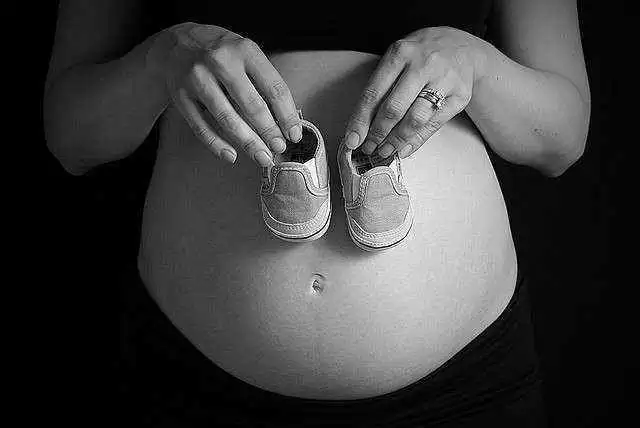.webp.e254947a67d48afc7acbaffdb2a53d9c.webp)
Celiac.com 06/12/2013 - Pregnant women with higher levels of issue transglutaminase (anti-tTG), an antibody common in people with celiac disease, at risk for low fetal and birth weight in their babies, according to a new study in Gastroenterology.
 A number of studies before this one have confirmed an association between celiac disease and poor growth fetus growth, but very little study had been done as to how the level of celiac disease might affect fetal growth, birth weight or birth outcome.
A number of studies before this one have confirmed an association between celiac disease and poor growth fetus growth, but very little study had been done as to how the level of celiac disease might affect fetal growth, birth weight or birth outcome.
Celiac.com Sponsor (A12):
In an effort to better understand how the level of celiac disease affects fetal growth, birth weight, and birth outcome, a team of researchers set out to assess the associations between levels of antibodies against tissue transglutaminase (anti-tTG, a celiac disease marker) and fetal growth and birth outcomes for pregnant women.
The research team included J.C. Kiefte-de Jong, V.W. Jaddoe, A.G. Uitterlinden, E. A. Steegers, S.P. Willemsen, A. Hofman, H.Hooijkaas, and H.A. Moll of the Generation R Study Group at Erasmus University Medical Center in Rotterdam, The Netherlands.
They conducted a population-based prospective birth cohort study of 7046 pregnant women. Serum samples were collected during the second trimester of pregnancy and analyzed for levels of anti-tTG.
Based on these levels, they grouped each woman into groups of negative anti-tTG (≤0.79 U/mL; n = 6702), intermediate anti-tTG (0.8 to ≤6 U/mL; n = 308), or high anti-tTG individuals (over 6 U/mL; n = 36). They then collected data for fetal growth and birth outcomes from ultrasound measurements and medical records.
The fetal growth data showed that, on average, fetuses of women in the positive anti-tTG group were 16 g lighter than those of women in the negative anti-tTG group (95% confidence interval [CI], -32 to -1 g) during the second trimester and weighed 74 g less (95% CI, -140 to -8 g) during the third trimester.
The birth outcome data revealed that newborns of women in the intermediate and positive anti-tTG groups weighed 53 g (95% CI, -106 to -1 g) and 159 g (95% CI, -316 to -1 g) less at birth, respectively, than those of women in the negative anti-tTG group. Of mothers in the intermediate anti-tTG group, those with HLA-DQ2 or -DQ8 had reduced birth weights that were double those of mothers without HLA-DQ2 or -DQ8.
This study led the researchers to conclude that levels of anti-tTG in pregnant women are inversely associated with fetal growth. The higher the anti-tTG in women, the lower the birth weights of their babies. So, women with the highest levels of anti-tTG (over 6 U/mL) saw the greatest reduction in birth weight of their babies.
Also, women with intermediate levels of anti-tTG (0.8 to ≤6 U/mL) saw lower birth weights that were even further reduced if they carried the HLA-DQ2 and -DQ8 gene markers.
Source:
- Open Original Shared Link





Recommended Comments